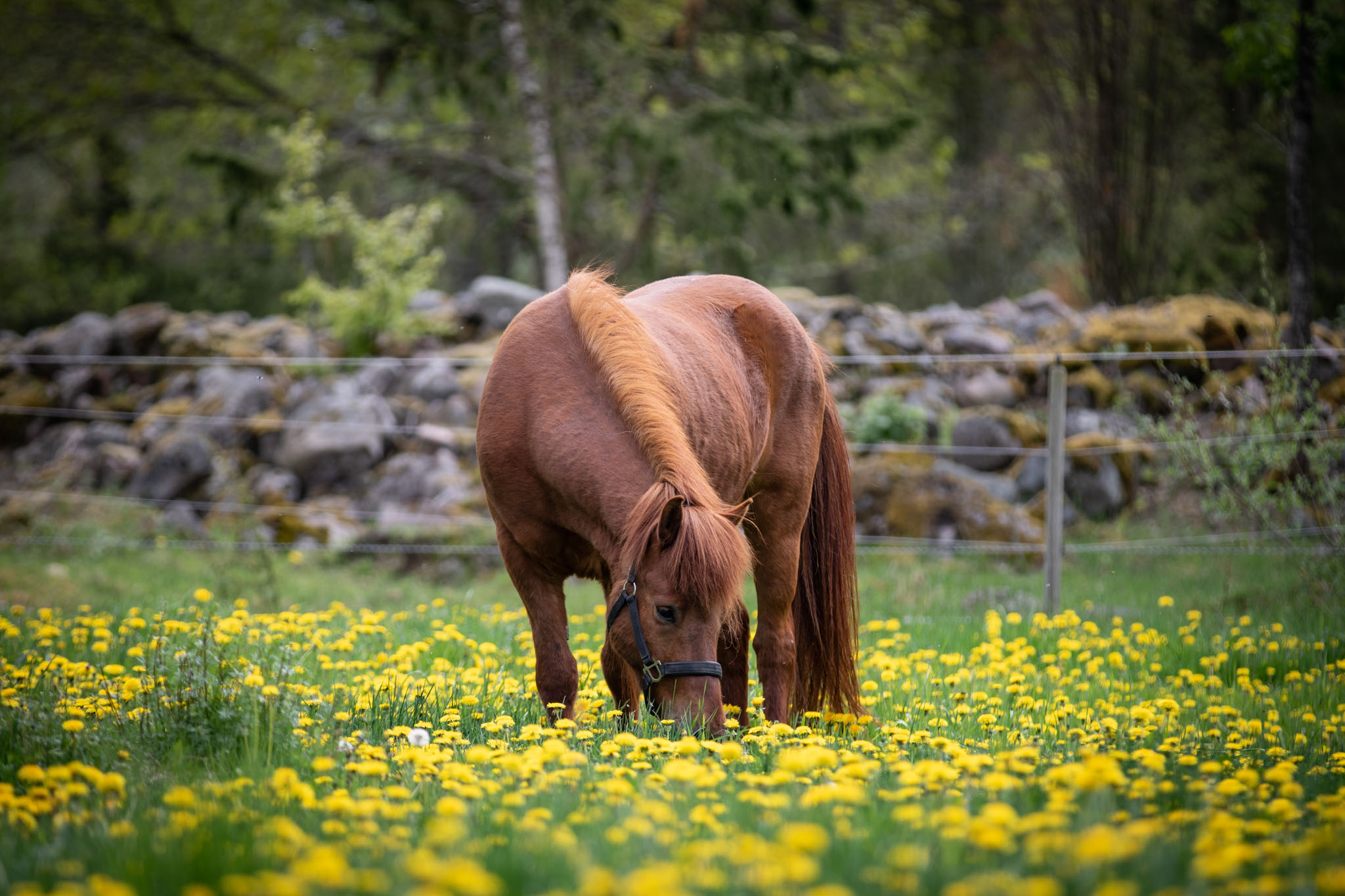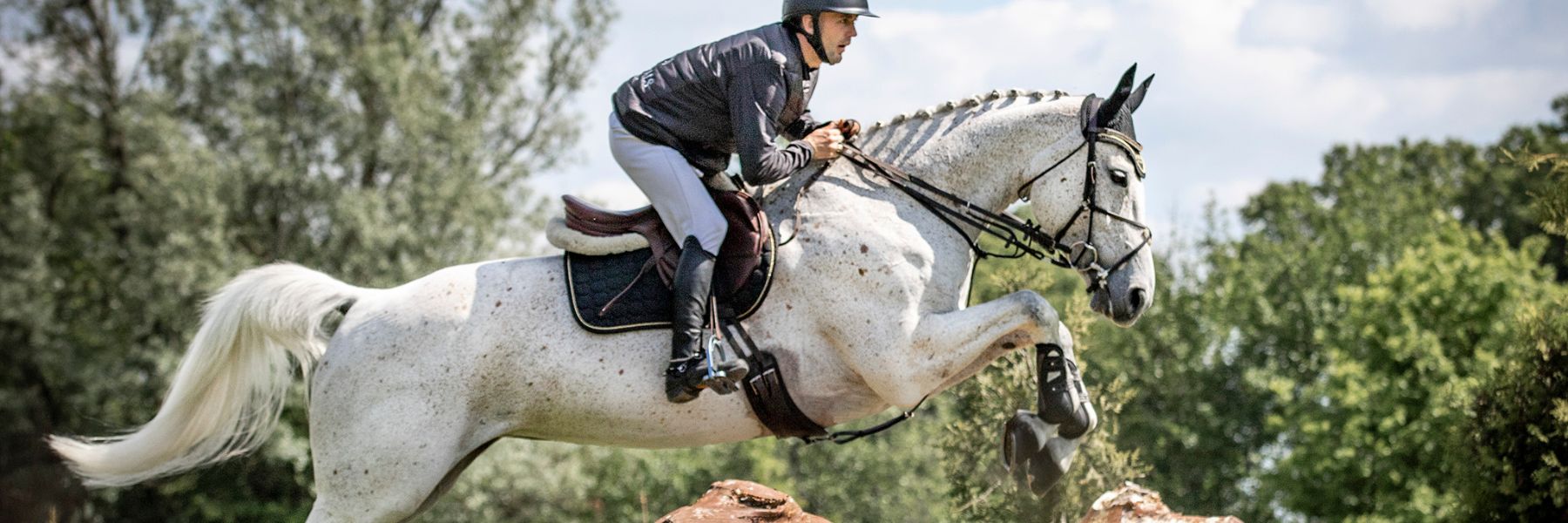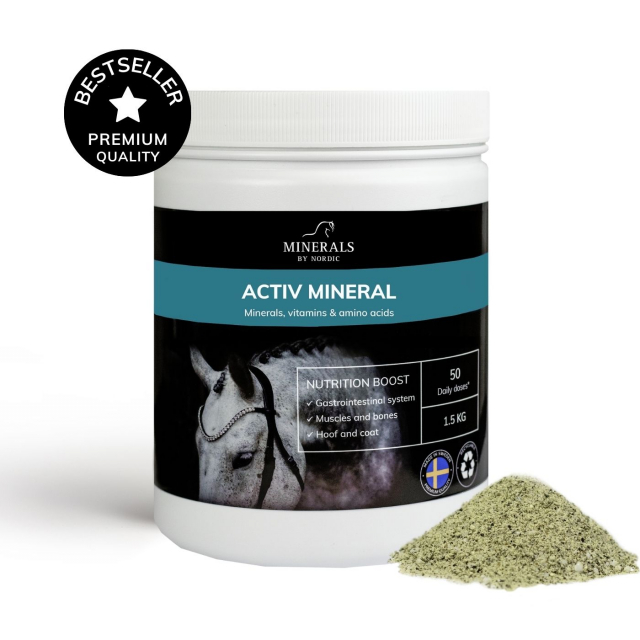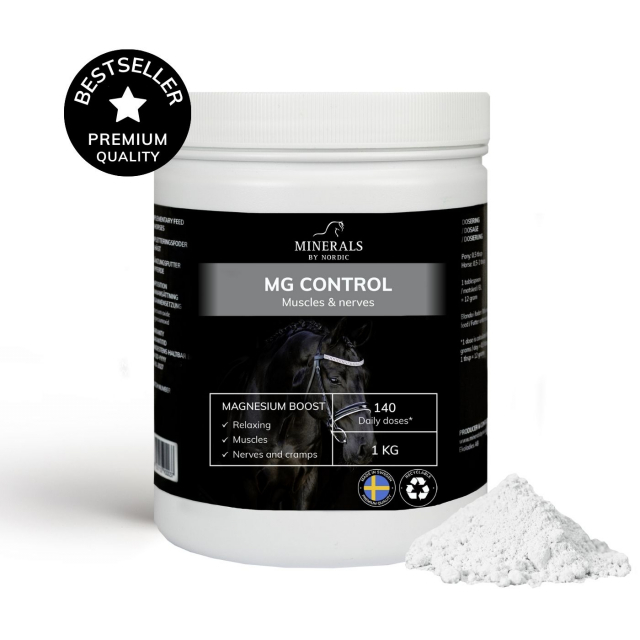
5 summer tips for your horse
Support your horse in the summer heat!
Supposedly we are going to have a record hot summer, and it will also affect our horses. How do you make the most of the wonderful summer months? To ensure that a horse thrives as much as possible during the summer, there are some important factors to consider. Here, we have gathered our best tips.
Water and hydration for the horse
Be attentive to any signs of overheating and dehydration. It is important that the horse has access to an ample supply of clean water at all times. During the summer, horses can become thirsty, and it is essential to ensure that they do not become dehydrated. Regularly check the water source and ensure that it is clean and fresh. A horse's daily water requirement is 5 liters per 100 kg body weight at rest. For example, it is 25 liters for a 500 kg horse in maintenance needs, but they can drink up to 60 liters when the need increases. When a horse is working, for example, it can lose 10-15 liters of body fluid per hour, meaning it must drink more.
Exercise and training
Avoid training the horse hard during the hottest days and ensure that the horse gets enough rest and recovery. Plan riding sessions or training during the cooler times of the day, such as early in the morning or late in the evening.
Shade and protection to avoid overheating
Horses may struggle to regulate their body temperature on hot summer days. Horses need access to shaded areas to protect themselves from the sun and avoid overheating. Ensure that there is sufficient shade in the pasture or paddock where the horse stays. If there is not enough natural shade, consider putting up shade sails or building a shade structure. During the summer, insects such as flies and mosquitoes can be troublesome for horses. Use insect repellent or move the horse to areas with fewer insects if possible. It can also be helpful to have fly rugs and fly masks to protect the horse from irritating insects.
Water and hydration for the horse
Be attentive to any signs of overheating and dehydration. It is important that the horse has access to an ample supply of clean water at all times. During the summer, horses can become thirsty, and it is essential to ensure that they do not become dehydrated. Regularly check the water source and ensure that it is clean and fresh. A horse's daily water requirement is 5 liters per 100 kg body weight at rest. For example, it is 25 liters for a 500 kg horse in maintenance needs, but they can drink up to 60 liters when the need increases. When a horse is working, for example, it can lose 10-15 liters of body fluid per hour, meaning it must drink more.
Exercise and training
Avoid training the horse hard during the hottest days and ensure that the horse gets enough rest and recovery. Plan riding sessions or training during the cooler times of the day, such as early in the morning or late in the evening.
Shade and protection to avoid overheating
Horses may struggle to regulate their body temperature on hot summer days. Horses need access to shaded areas to protect themselves from the sun and avoid overheating. Ensure that there is sufficient shade in the pasture or paddock where the horse stays. If there is not enough natural shade, consider putting up shade sails or building a shade structure. During the summer, insects such as flies and mosquitoes can be troublesome for horses. Use insect repellent or move the horse to areas with fewer insects if possible. It can also be helpful to have fly rugs and fly masks to protect the horse from irritating insects.

Pasture and Feeding Tips
If you let your horse graze, it's good to keep in mind that the grass in the pasture can become dry and nutrient-deficient during the summer. Ensure that the horse has enough land to roam and consider supplementing with hay or other feed to ensure that the horse receives sufficient nutrition. Consider feeding in the morning or evening when it's cooler to avoid heat stress.
Don't forget minerals in the summer pasture!
Horses need minerals year-round. A mineral supplement can help ensure that the horse receives enough of these important minerals. Reformin Pur.Stixx is a convenient reward treat enriched with minerals and vitamins. Activ Mineral is also suitable if you have the opportunity to feed in a feeder in the pasture; this way, you can also provide electrolytes and prebiotics to the horses, as we'll explain more below.
Sweat = lost salts
When horses sweat, they lose not only water but also important electrolytes such as sodium, potassium, and chloride. Electrolytes help restore balance and maintain proper fluid balance in the body. It's essential to note that electrolytes are not stored in the body, so you cannot "load" a horse with electrolytes in advance of a hard performance but need to replenish them after the horse has been sweating. Also, always offer your horse clean water, especially when supplementing with electrolytes, as it makes the horse thirstier. We recommend giving electrolyte supplements in feed rather than water as they can alter the taste, causing the horse to drink less. Give electrolyte supplements after exercise or in sweaty conditions to help the horse recover and avoid dehydration.
Mash & prebiotics
Prebiotics can be useful for supporting a healthy gut flora in horses. They can help improve digestion and nutrient absorption, which can be particularly important if the grazing grass is lean or if the horse has a sensitive stomach.


 SWE
SWE


 ENG
ENG NO
NO AX
AX DE
DE